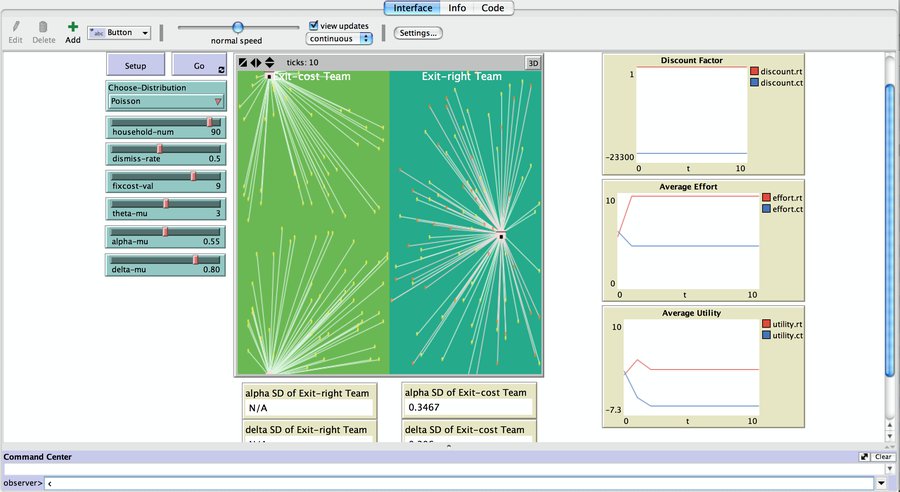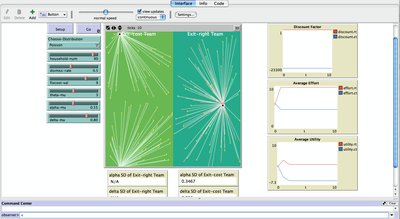Simulation of Self-enforcing Agreement in Cooperative Teams 1.0.0
This study develops a simulation model to test two typical hypotheses in the theory of self-enforcing agreements. In cooperative teams (such as agricultural cooperatives), a self-enforcing agreement plays a critical role to guarantee members’ work incentives when the monitoring from a third party is absent. In order to provide effective sanction to the violators so as to maintain the agreement, two seemly conflicting strategies are proposed. One is allowing the members to exit the team freely, while the other is imposing a high exit cost to restrict members from leaving the team. The views upholding each of the two strategies are elaborated in Lin (1993) and Dong and Dow (1993), respectively. We summarise the views as two hypotheses for a test using an agent-based model. The model incorporates factors that were not explicitly examined in previous discussions, such as the heterogeneity of households in terms of leisure preference and its distributions amongst team members.

